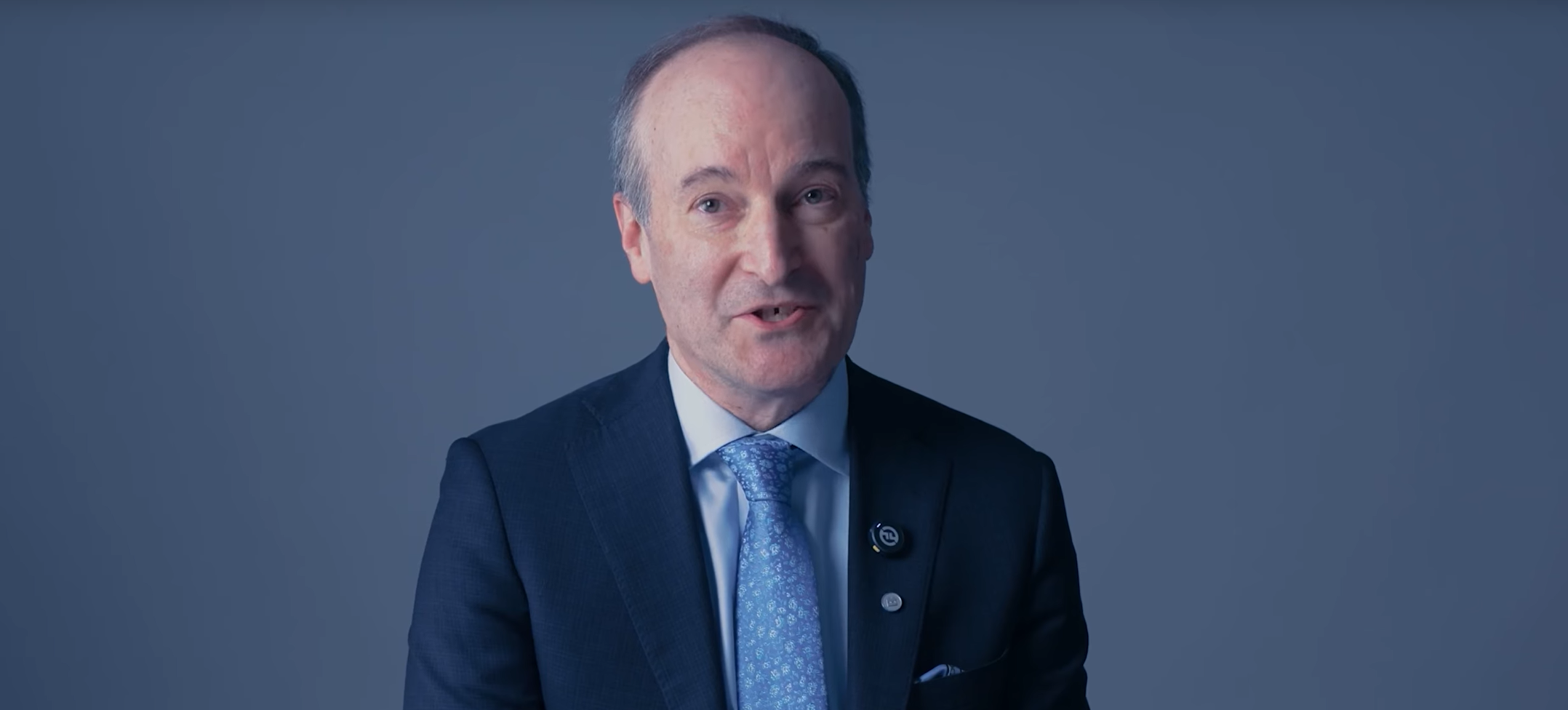Canada should resist efforts to exempt AI companies from copyright legislation, global expert says
MEANS & WAYS PHOTO
Means & Ways publisher Theo Argitis speaks with ICMP director general John Phelan on June 6.
Artificial intelligence presents boundless, exciting possibilities for the global music sector, but Canada needs to ensure fairness for songwriters, composers and music publishers, says global expert John Phelan.
Phelan, Director General of the International Confederation of Music Publishers (ICMP), discussed the many ways AI can revolutionize music - from enhancing the creative process to transforming the performance experience – during a Means & Ways event hosted by Publisher Theo Argitis.
Canada already has adequate copyright legislation in place, but it must resist efforts by tech companies and AI developers to flout the rules, Phelan said. This should include any pressure by global tech companies to seek exemptions from existing rules.
“The copyright law is robust; it’s tech neutral, it works, it has all the essential principles that we need there,” he said. “We don’t need to revise copyright law – we just need to get the AI companies to observe copyright law.”
To ensure enforcement remains effective, the ICMP and Music Publishers Canada (MPC) are working to make policymakers and the public at large more aware of the extent of “the commercial scale infringement” of copyright and how binding guidelines can mitigate against it.
In Canada, MPC is urging the federal government to bring in measures to ensure AI developers and dataset aggregators obtain prior permission to exploit rights holders’ works and be required to disclose detailed records of any datasets used in the training or testing of AI models. These requirements would disincentivize the unauthorized use of copyright-protected works and establish the transparency needed to pursue enforcement options against infringers, according to MPC.
Phelan said AI developers have enormous reach.
“Tech companies will use and abuse exceptions everywhere they can find them. These big tech companies are trying to maximize and abuse exemptions from copyright law in order to deliver the business target, which is maximum content, minimum responsibility, maximum commercial value for them, lowest payment to songwriters and composers,” he said. “And that needs to stop.”
Phelan said AI companies are increasingly facing court cases for copyright infringement and that more than 70 countries around the world are considering legislation of various kinds related to the use of AI.
He pointed to the European Union’s recent Artificial Intelligence Act, which includes tough new controls on copyrighted music used in the EU no matter where it was produced, as a “world first” and leading example for other jurisdictions. It also includes fines for copyright and other infringements, including penalties of up to seven per cent of global annual revenues for big tech companies.
Phelan predicted that AI will never make music obsolete or totally homogenized because the technology can not match the thrill of live performances or “the spark of genius” of creative works. In fact, AI is enabling and fuelling the development of local music around the world, he said.
Phelan dismissed the idea that enforcing existing copyright will slow innovation, calling it a disingenuous argument from the tech companies.
“We live in a globalized, digitized business where people can get music onto a global platform instantaneously. That’s a good thing,” Phelan said, adding a warning that without controls over generative AI, “illegal music will become an increasing problem.”
Phelan said AI presents the music sector with valuable advantages in developing certain creative works and efficient business-to-business uses. With the appropriate regulatory framework that ensures the legal and ethical use of AI, music publishers, songwriters and composers will ultimately be able to reap even more revenue from it, he said.






